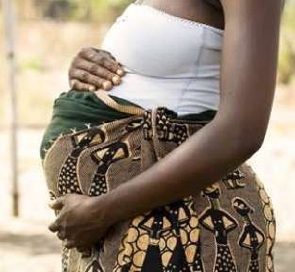Health News of Thursday, 5 March 2020
Source: GNA
Gender Desk Officers tasked to prioritize adolescent health education
The percentage of teenage pregnancy cases in the Western Region reduced to 12 per cent last year as against 18 per cent in 2018.
A 2017 research by the Maternal Health Survey revealed that the Western Region recorded the highest percentage in teenage pregnancy of 19 per cent in that year.
The Acting Regional Director for the Gender Department, Ms. Maribel A. Okine made this known during a two-day training workshop to sensitize Gender Desk Officers in the Region on adolescent sexual and reproductive health needs.
The workshop jointly organized by the Department of Gender and the United Nations Population Fund (UNFPA) was to among others train the Desk officers on effective communication skills on issues pertaining to adolescents.
It was also to build the capacity of the Gender Desk Officers to enable them respond to the sexual and reproductive health and gender needs of Adolescents.
Ms Okine noted that though the adolescent population formed about 24 percent of the total Human force of the country their health, economic, education and socio-emotional well-being were not properly integrated , particularly in development plans, thereby leaving them in a Limbo in that age bracket.
The Acting Regional Director was happy that the Region had been able to reduce the percentage of teenage pregnancies and commended the Gender Desk officers and health professionals for their efforts.
She asked that the same enthusiasm that was used to help reduce the teenage pregnancy cases should be applied in dealing with the issues of adolescent health needs.
She called on the participants to take the workshop seriously and use the knowledge acquired to analyze reproductive health issues at the local level to address challenges faced by Adolescents.
For her part, Ms Sandra Kuntu Anaman, an Adolescent Health Development (ADHD) Specialist, said young people between ages 11 and 24 were the next workforce for the country, hence their health concerns have to be taken very seriously.
She noted that children in their developmental stages stood the risk of sexually Transmitted Infections (STIs), HIV/AIDS, Teenage pregnancy and therefore called on parents to be more responsible during that period, to avert some of the social disasters such children often encountered in their development.
Ms Anaman said the rate of Adolescent growth in Ghana clearly indicated that the future of the nation and region would be driven by these young people.
"That is why we need to make a compelling case to policy makers and stakeholders that interventions should be devised to shape the adolescents into responsible adults,” she added.
She mentioned forming school and community clubs, developing adolescent mobile applications, creating adolescent health corners and using “edu-tainment' as some of the means to assist the adolescents with information that would empower them.
The participants were taken through “Making a Compelling Case for Adolescents” using the National Adolescent Policy and section of Adolescent Sexual & Reproductive Health Toolkit for Humanitarian Settings by UNFPA, “Meeting Adolescent Sexual and Reproductive Health Needs”, “Gender Concepts, Gender Mainstreaming; linking gender and health” and “Roles of GDOs: responding to SRHR and Gender needs of Adolescents”.











